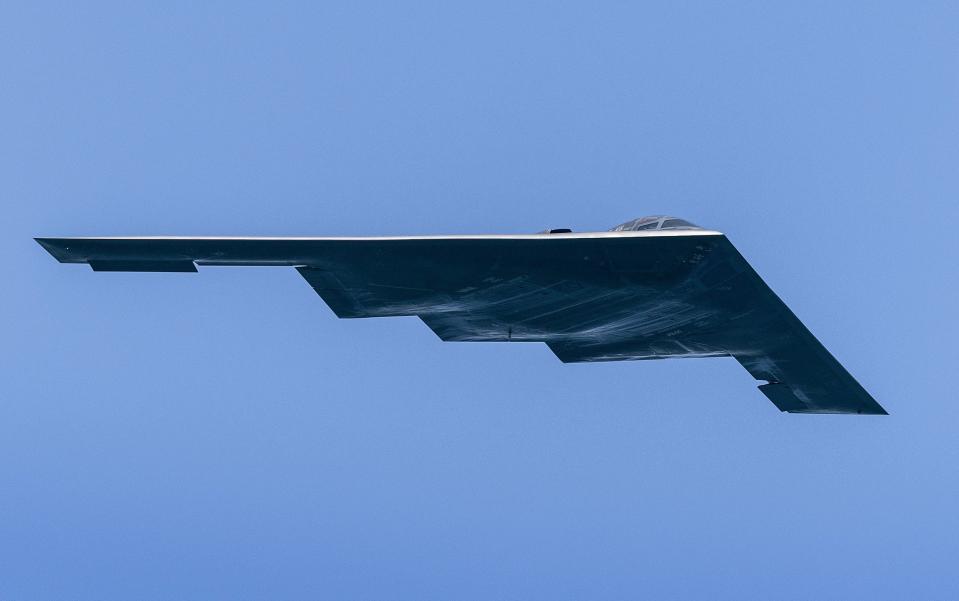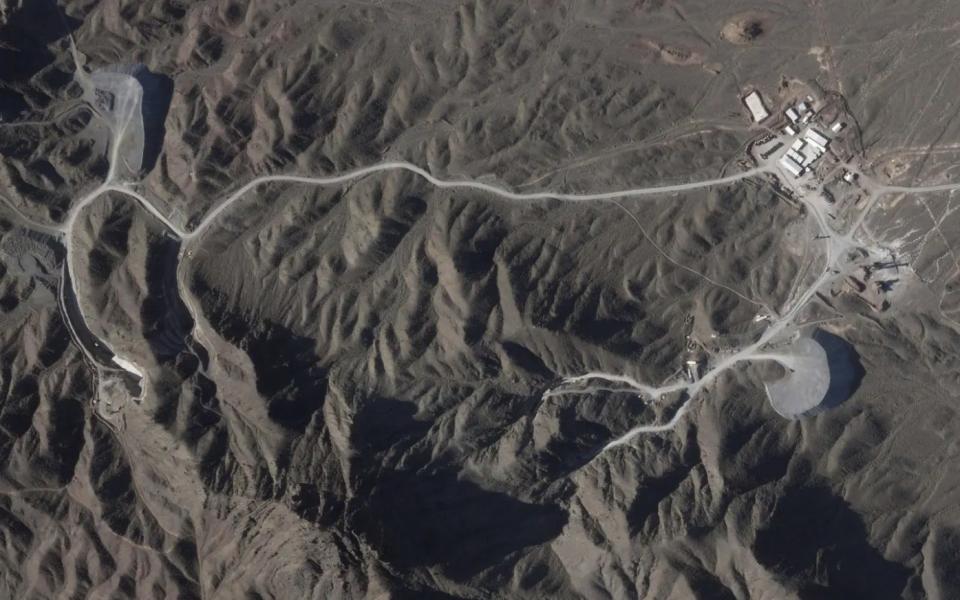Israel would not be able to attack Iran’s nuclear programme without the US, a former Israeli prime minister has warned in an interview with The Telegraph.
Ehud Olmert said Israel might not have the “capacity to penetrate the deep underground bunkers that are spread in different parts of Iran”.
Instead, he suggested, an attack on Iran’s nuclear programme would have to be carried out by the US with Israeli assistance.
“Then it’s a different story. It has to be an American decision,” Mr Olmert said. He added: “There are many other targets for Israel that will be painful and significant and possibly also deter [Iran].”
Joe Biden has said he doesn’t support an Israeli attack on Iran’s nuclear sites in retaliation for the 180 ballistic missiles fired by Tehran at Israel last week. But pressure has been building from Donald Trump, who said over the weekend he supports strikes.
Mr Olmert also revealed for the first time that when he made the decision as Israeli leader in 2007 to launch an attack on Syria’s nuclear programme, he had forewarned Gordon Brown, then the UK prime minister.
There were two world leaders who knew about the attack, Mr Olmert said. “One was President Bush, with whom I took counsel for a long time.”
“The only other head of state that I shared this information with was Gordon Brown. I told him about the atomic reactor in Syria and that we were going to destroy it.”
The government and agencies, Mr Olmert continued, responded to his sharing of intelligence with gratitude. “They told me they would never forget the trust that Israel bestowed upon them, sharing such sensitive information before a military operation.”
‘No mutual respect’
Mr Olmert is, however, sceptical that Benjamin Netanyahu, the current Israeli prime minister, would share similar intelligence with Sir Keir Starmer, if the former decided to attack Iran’s nuclear sites.
“I don’t think that there is a mutual respect on both sides to justify it or to enable [it],” he said.
When asked about Mr Starmer’s decisions vis-a-vis Israel in recent months, such as a partial arms embargo, Mr Olmert said might not agree with them, “but I can understand”.
“I think [the embargo is] a mistake but we all know that it’s very symbolic, because Israel does not depend on the military supply from the UK,” Mr Olmert said.


In 2006, Mr Olmert launched the second invasion of Lebanon in Israel’s history, after Hezbollah launched cross-border attacks, killing three soldiers and kidnapping another two into Lebanese territory.
Forty-nine Israeli civilians and 121 IDF (Israeli Defence Force) soldiers were killed. More than 1,000 Lebanese died, including an estimated 500 members of Hezbollah.
The war ended with UN Security Council resolution 1701, which called for a permanent ceasefire and a removal of armed groups from southern Lebanon.
Hezbollah on the ropes
Now, with Israel’s military pounding Hezbollah on a daily basis in all corners of Lebanon, Mr Olmert said the terror group feels the “enormous power that Israel can exercise, and they are not where they used to be a month ago”.

But continuing the war for much longer “is not in Israel’s interest”, he added. “You have to ask yourself, what is the strategy? We don’t want to occupy Lebanon now for another 18 years.
“So we will want to withdraw back to the international border. The question is not whether we can beat them or not. The question is whether we can block them from returning back to the border.”
Mr Olmert presented two ways Israel can prevent Hezbollah from returning to southern Lebanon. He said he was “very much against” the first – pushing Hezbollah north of the Litani River and staying there with IDF forces.
The other option was to reach an agreement with Lebanon and Hezbollah to finalise once and for all the borders, said Mr Olmert.
He added: “That requires a certain compromise from our side as well. I think we should pursue this instead of a military confrontation that may not lead us to a permanent solution.”
As the Middle East awaits the looming Israeli attack on Iran, Mr Olmert said he hopes it won’t be the opening of a “much broader confrontation”.
He said: “If that does not happen, then we may be in the beginning of a new phase, reducing the tension and coming closer to the end of the war.”
